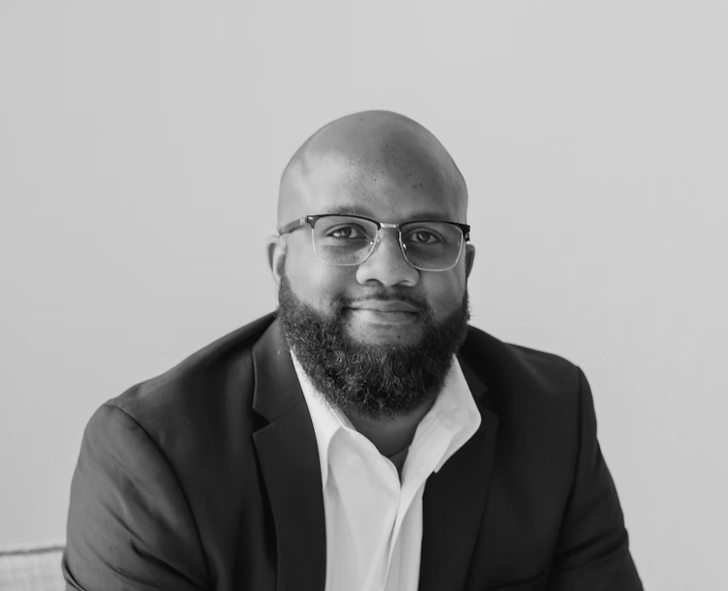Fatherhood, Mental Health, and Finding Purpose: A Father's Day Reflection with Tyler Chamness
Becoming a parent changes everything. For Tyler Chamness, it brought a deeper sense of purpose—and a new way to care for his mental health.
4 min read
Care Solace Aug 25, 2023 9:28:57 AM
.png)
How do men in your life answer the question, "How are you?" If they answer with a simple, “fine,” you should ask again. According to the Surgeon General, Vivek Murthy, the truth about how men are is more complicated. And he would know — it’s his job to have his finger on the pulse of men’s mental health in the United States. He recently published an advisory on the epidemic of loneliness and explores how this epidemic impacts boys and men in an episode of his podcast House Calls.
The episode, “Why Are Men and Boys Struggling For Connection?” features researcher, author, and president of the (brand new) American Institute of Boys and Men, Richard Reeves. The episode’s insightful and challenging conversation can serve as a great springboard for other conversations with the men in our lives — like the one below with Care Solace’s Josh Haeffner.
Care Solace: Josh, Richard Reeves says, “There’s still a tendency for men to see emotional labor as women’s work.” Thoughts?
Josh: I think that’s true. Historically, men have been more stoic or aggressive and less emotionally available and vulnerable. Men have had the dirty jobs, taken the physical risks, and been in the literal trenches. We’ve found value in being responsible for the protection and success of others, and women have found more value in nurturing and connecting with others.
CS: How do men naturally connect to each other?
Josh: We connect and form friendships at work and at play (like in sports). Men tend to initiate talk while working alongside each other. It gives us an opportunity to gauge each other’s character, strengths, and weaknesses. We can assess. Can I trust this guy to have my back? Is he speaking his mind?
Men don’t need to know details of each other’s lives to connect. No need to know about each other’s hometown or home life. We can be comfortable in shared work and goals.
CS: But now it’s not so easy to make those connections, right? Remote work, fewer men in colleges, churches . . . How have you made connections?
Josh: I’m fortunate to have good connections in my work at Care Solace. I also have a group of guy friends from college that I stay in close touch with. It’s hard to imagine life without them, even though we live all across the country. I can easily see how guys today might have a hard time finding a group of friends post-college.
CS: Reeves describes that men have traditionally anchored their identity in their work. Do you? Did your dad?
Josh: I don’t anchor my identity in work — probably because of what my dad modeled for me. He was a social worker and a therapist on the side. My dad’s identity didn’t come from his work; his work came from his identity. He’s always been a kind, caring man. He grew up poor, was held back in school, and got his masters in his 40’s. He is the only one of all of his 5 brothers who isn’t/wasn't a trade worker. He took his own path. As I am!
CS: Men’s emotions are just as important as women’s emotions. And men need to be recognized — seen and heard for who they are — just as much as women do. What can we all do to recognize the men in our lives?
Josh: While men need to feel seen/heard, they need to be seen/heard in ways they will appreciate and understand. Men feel recognized when they feel respected. For example, men enjoy finding solutions and earning respect for those solutions. We need to show men that we respect their efforts and communicate that respect directly and sincerely.
-Josh Haeffner
.jpg)
CS: How can we encourage men in our lives to open up emotionally, especially in intimate relationships?
Josh: Men may tend to believe that less is more as far as showing emotion goes. That’s partly instinctual, partly cultural — nature/nurture. “Happy wife, happy life” still makes us laugh, but it’s not totally funny. It captures the idea of prioritizing a loved one's needs and desires, but it also hints at a darker truth. Men might stuff their opinions and feelings to keep the peace. Is that really what we want from them? I hope not.
That’s where the “always ask twice” idea comes in. If a guy is asked, “How are you?” or “Is it ok if we . . .” or “How does this look?”, he may be inclined to give you the agreeable answer it feels like you’re seeking. Ask again. Show him it’s ok to give the real answer, whatever it is.
CS: Can men work toward gender equality and still be a guy?
Josh: YES. And men who advocate for gender equality should still be viewed as allies if they aren’t in perfect alignment with the other. We all need to accept — even welcome — imperfect allies in any given situation to make positive change. Some grace is required as we look back on behaviors that were the norm of the past that are no longer acceptable. People grow over time. If we can’t accept the pacing of another’s growth, how can we move forward?
CS: And as Richard Reeves says, progress doesn't mean men should shrink themselves! It sounds like you had a good role model of masculinity in your dad. You admire him. What did he teach you?
Josh: My dad is one of the nicest human beings alive. The first thing that comes to my mind is he would say, “No means no.” I understood exactly what he meant.
He also demonstrated how important kindness is, how important going out of your way to help is. I remember being on the Ocean City boardwalk, and an elderly woman was struggling to walk. He approached her and simply asked, “Do you need any help?” Isn’t that a beautiful question and gesture? Like I said earlier, men feel good about participating in the protection and success of others.
One other thing he always said was “Life isn't fair.” It’s a simple truth. I hold onto that.
CS: Last thing. In the podcast, Reeves says male strength is usually associated with being the loudest one in the room, the most confident, the most forceful. What does strength mean to you?
Josh: To me, being a strong man means figuring it out — no matter the circumstances. No matter how upset you are, no matter how much someone hurts you, no matter how much craziness is around you, you need to figure it out.
Figuring it out means being able to take risks. It means doing what you feel is right, holding your ground, sticking your neck out for someone else, and being there for others. And figuring out also means being able to ask for help.
If you have a man in your life who seems to be struggling, ask him how he is. Then ask again. Men's mental health matters, so if he needs additional support, remember Care Solace is determined to provide the men in our lives with the right help 24/7/365.

Josh Haeffner is our Senior Customer Success Coordinator and his professional background is in higher education. He grew up in character-shaping South Jersey. With both of his parents now retired social workers, mental health has always been part of his life. In his free time, Josh enjoys hiking, bouldering, cooking, and playing with his dog.

Becoming a parent changes everything. For Tyler Chamness, it brought a deeper sense of purpose—and a new way to care for his mental health.

The demand for culturally relevant and equitable care has never been more pressing. Dr. Aaron Henderson, a therapist, professor, and social justice...
.png)
1 min read
As high school teachers, administrators, coaches, school health professionals, and other support staff, we see students struggling in the shadows of...